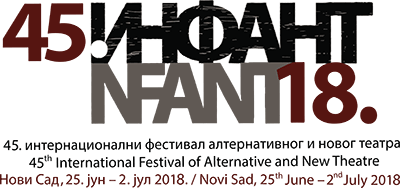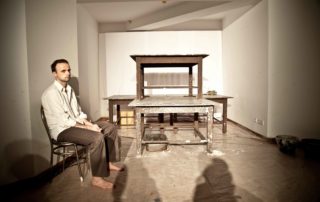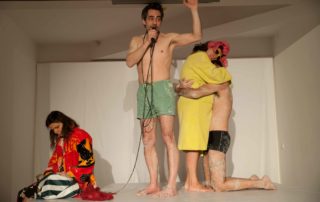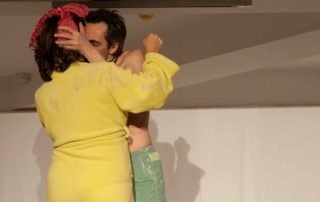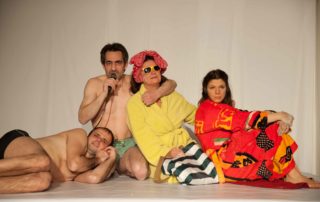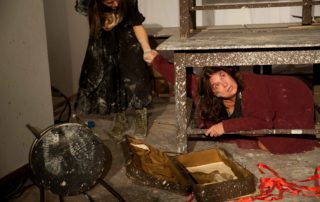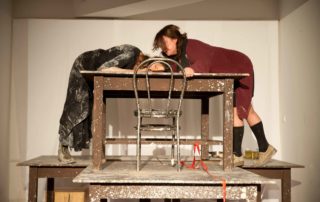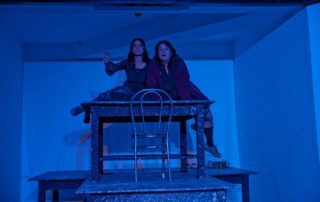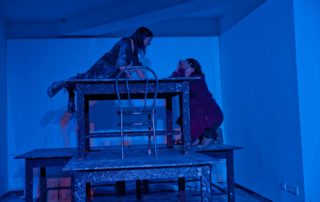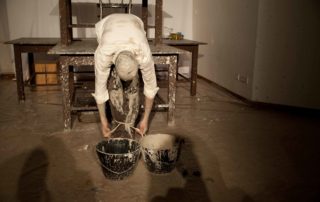THE BALKAN LAMENT
The Theatre Puls, Serbia in cooperation with –
The Cultural Institution Parobrod, Serbia,
The Austrian Embassy in Belgrade
Director: Stevan Bodroža
Cast: Dragana Varagić, Ana Stefanović Bilić, Đorđe Simić/Boba Stojimirović, Čarni Đerić
Running time: 110`
The Cultural Institution Parobrod is one of the most important reference points of contemporary culture in Belgrade. It was founded on the tradition of Školigrica and Škozorište – of the Cultural Centre “Stari Grad”. Working every day for five years in its second incarnation, the Institution has been covering the fields of visual programme, film, theater, music, pop culture, workshops and festivals.
Parobrod (Steamboat) is an institutional icebreaker and a tugboat of alternative formats, from the open door postulates, through the idea of multiculturalism, to the mainstream creative industries and social networks.
The Theatre Puls – the first suburban theatre Lazarevac – is engaged in non-profit activities related to drama, as well as creative activities in social, humanitarian, cultural and other contexts, related to the development and improvement of the population in the territory of its operations, primarily in Lazarevac. Moreover, it focuses on the development and improvement of work and creative activities of dramatic artists in the entire municipality.
In the former Yugoslavia, as many as 10,000 people are still listed as missing. The fact that tragic destinies of these people remain unexplained makes it clear that the Western Balkan countries have only swept their dark, recent past under the carpet and continued their historic path with a suppressed trauma that threatens to generate new hatred and conflict sooner or later.
“The Balkan Lament” (Balkanska tužbalica) consists of three texts. The first text, by the renowned Bosnian-Herzegovinian writer, Almir Imširević, is an account of a victim – someone who was taken away, tortured, both physically and mentally, and then killed and buried in a mass grave. It is a monologue of a ghost, who reflects on his life and the horror of his end after death.
The second is the text by Kosovo writer Doruntina Basha “The Finger” about those who remained after their loved ones were taken, who long for their return, yet feeling deep inside with horror that this would probably never happen.
The third part is the drama of another famous Bosnian-Herzegovinian writer and theatrologist, Almir Bašović, a fictitious monologue of a killer, someone who participated in the killings, watched them, helped to bring them about, and who finally escaped arrest and justice, blending into the mass of people after the war and continued to live his petty life. It’s a person who still remembers everything he did, but does he repent, justify his own actions, does he try to forget? Or maybe he’s proud?
The Balkan Lament is a reality check for the Balkan audiences, not only because it treats the problem of those who went missing during the wars, but also because it is an artwork that takes a realistic look at what happened between the former Yugoslav republics.
Jelena Diković “Danas”
